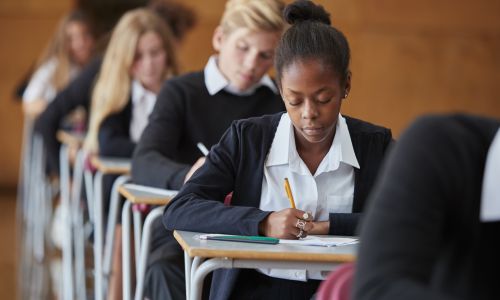A think-tank has proposed a departure from single-year measures in performance tables which can “make or break” a school, and propose using headline performance measures to “release the pressure valve” but without undermining the government’s ability to hold schools to account.
The Institute for Public Policy Research (IPPR) wants the government to review the necessity of pupil-level grading in key stage 2 SATs, proposing a general school measure measure without individual grading of pupils. The proposal is aimed at reducing the academic pressure faced by final year primary school pupils, many of whom have complained of the stress of sitting SATs exams.
Year 6 SATs exams are compulsory in the UK, and results are used to measure both the school and each child’s progress and achievements in maths, spelling, punctuation & grammar, plus reading. The results show the progress between Year 2 and Year 6, which is really important to show what children have learnt in English and Maths..
This year, 59% of pupils reached the expected level in Maths, reading and writing , a 6% lower margin than in 2019 when it was 65%.
Year 6 SATs results are used to measure both the school and each child’s progress and achievements in Maths, spelling, punctuation & grammar, plus reading. The results show the progress between Year 2 and Year 6, which is really important to show what children have learnt in English and Maths.
The think-tank views exam sitting for primary school pupils as being geared towards being used as a tool for assessing the academic standard of schools, and argue that pupil-level results are not needed for school accountability, system monitoring or setting a school-level baseline for progress 8.
They suggest that any future curriculum should “guarantee all pupils an entitlement to a common body of knowledge and skills” informed by “ongoing, subject-based debate”. Schools should be allowed to shape a “context-informed” curriculum, too.
The thinktank recommends that schools focus on pupils achieving “competency” in a small number of core subjects, but then given more opportunities to learn in independent ways, such as “real-world projects”.
Labour has committed to a full review of curriculum and assessment, including looking at a a broader curriculum, “so that children do not miss out on subjects such as music, art, sport and drama”.
Music has a rich curriculum in a number of countries like The Netherlands, America, India, and some African countries like Nigeria and Ghana.
It said that rather than relying solely on single-year outcomes, headline performance measures would encompass a range of indicators that reflect a school’s overall progress. These could include factors like student engagement, extracurricular participation, and teacher professional development.
Headline measures would emphasize the evaluation of schools’ performance over multiple years, providing a clearer picture of trends and improvements, capturing the essence of a school’s journey toward betterment.
The departure from singular metrics can encourage schools to offer a more well-rounded curriculum that nurtures students’ creativity, critical thinking, emotional intelligence, and social skills, an approach that aligns with the broader goals of education.
While the school does not object to schools would still undergoing regular evaluations to ensure they are meeting the established standards, it does not address the important development for children in working hard and preparing for assessed tests.




